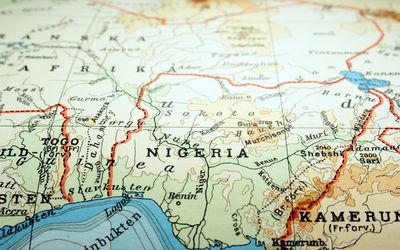Nigerian parliament finally passes 2016 budget
by Agency Staff,
2016-03-23 16:50:53.0
LAGOS — Nigeria’s parliament finally approved President Muhammadu Buhari’s 2016 budget on Wednesday, paving the way for massive spending designed to boost growth in the country grappling with the global oil price crash.
The upper senate and the lower house of representatives approved the budget, which now needs to be signed into law by Mr Buhari. He announced the record six-trillion-naira ($30bn) budget in December, promising to stimulate growth and build infrastructure.
But the proposal became engulfed in controversy after civil groups pointed out costly errors that opened the door to graft, including the same purchases for vehicles, computers and furniture multiplied 24 times, totalling 46.5 billion naira.
"Now it is the job of the executive to ensure full implementation of the budget," Senate President Bukola Saraki said, adding that the size of the budget has been marginally reduced from 6.08 trillion naira to 6.06 trillion.
Nigeria is suffering from a more than 60% drop in oil prices since 2014, depleting the import-dependent nation’s foreign reserves and spurring a currency crisis. Mr Buhari hopes his expansionary budget will inject much-needed cash into the country to develop sorely lacking infrastructure and wean itself off oil.
"This is still a record budget in terms of the spending levels," Manji Cheto, an analyst at London-based Teneo Intelligence, said. "Implementation is key. The way Mr Buhari’s government can distinguish itself is actually meet budget implementation targets," Cheto said. "We need to see what infrastructure projects will be prioritised, if they even expand the gas infrastructure, it could be a game changer for Nigeria."
Mr Buhari has focused on a sweeping anti-graft campaign designed to stop endemic corruption and wasteful spending in the country. Last month, the country’s finance ministry said it had saved millions of dollars for the cash-strapped government by removing more than 20,000 "ghost workers" from the state payroll.
AFP

Picture: THINKSTOCK
LAGOS — Nigeria’s parliament finally approved President Muhammadu Buhari’s 2016 budget on Wednesday, paving the way for massive spending designed to boost growth in the country grappling with the global oil price crash.
The upper senate and the lower house of representatives approved the budget, which now needs to be signed into law by Mr Buhari. He announced the record six-trillion-naira ($30bn) budget in December, promising to stimulate growth and build infrastructure.
But the proposal became engulfed in controversy after civil groups pointed out costly errors that opened the door to graft, including the same purchases for vehicles, computers and furniture multiplied 24 times, totalling 46.5 billion naira.
"Now it is the job of the executive to ensure full implementation of the budget," Senate President Bukola Saraki said, adding that the size of the budget has been marginally reduced from 6.08 trillion naira to 6.06 trillion.
Nigeria is suffering from a more than 60% drop in oil prices since 2014, depleting the import-dependent nation’s foreign reserves and spurring a currency crisis. Mr Buhari hopes his expansionary budget will inject much-needed cash into the country to develop sorely lacking infrastructure and wean itself off oil.
"This is still a record budget in terms of the spending levels," Manji Cheto, an analyst at London-based Teneo Intelligence, said. "Implementation is key. The way Mr Buhari’s government can distinguish itself is actually meet budget implementation targets," Cheto said. "We need to see what infrastructure projects will be prioritised, if they even expand the gas infrastructure, it could be a game changer for Nigeria."
Mr Buhari has focused on a sweeping anti-graft campaign designed to stop endemic corruption and wasteful spending in the country. Last month, the country’s finance ministry said it had saved millions of dollars for the cash-strapped government by removing more than 20,000 "ghost workers" from the state payroll.
AFP




















Change: -0.47%
Change: -0.57%
Change: -1.76%
Change: -0.34%
Change: 0.02%
Data supplied by Profile Data
Change: -1.49%
Change: 0.08%
Change: -0.47%
Change: 0.00%
Change: -0.09%
Data supplied by Profile Data
Change: 0.71%
Change: 1.01%
Change: 0.72%
Change: 0.29%
Change: 0.81%
Data supplied by Profile Data
Change: -0.24%
Change: -0.94%
Change: -0.13%
Change: -1.21%
Change: -0.02%
Data supplied by Profile Data